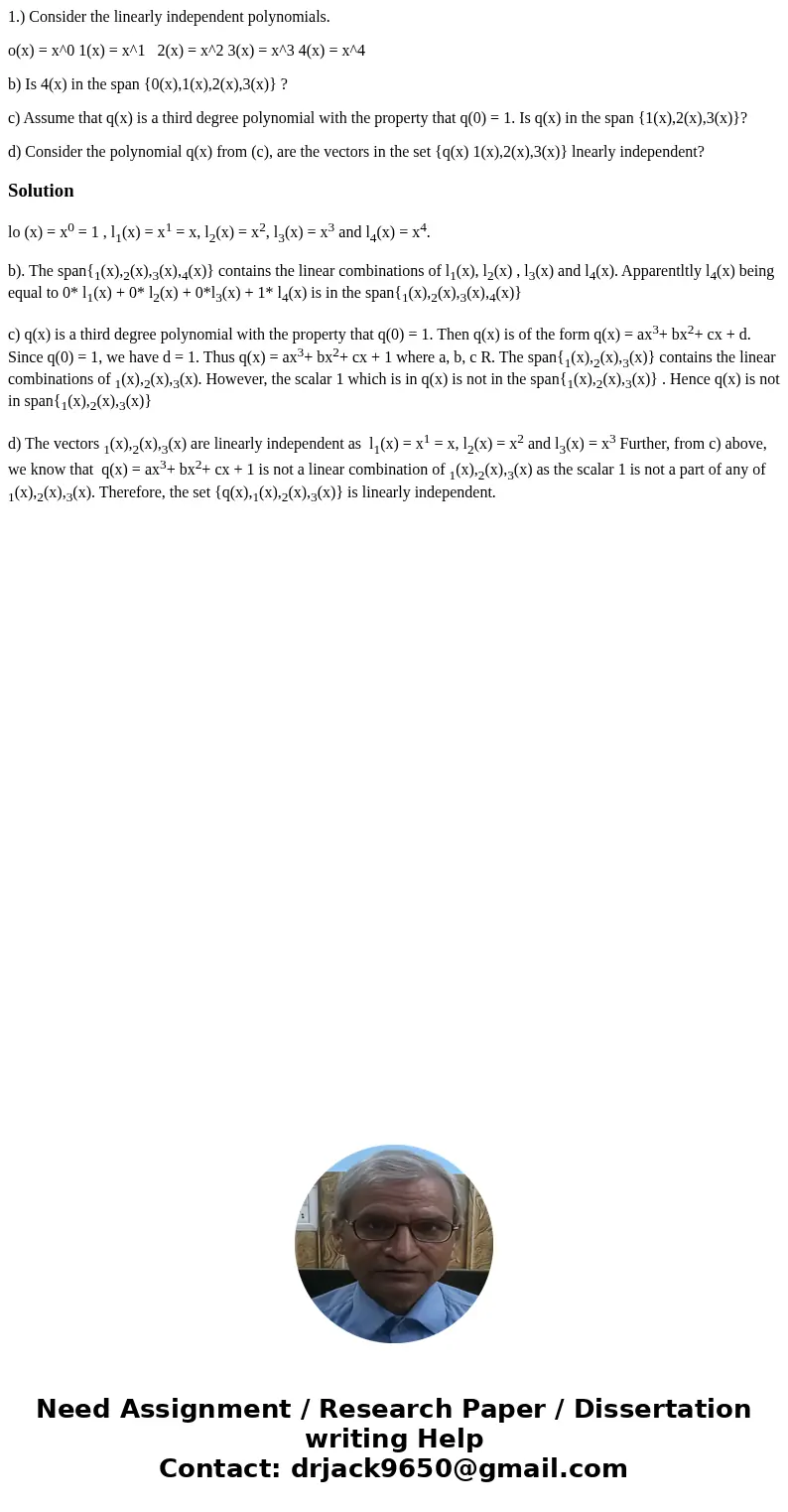1 Consider the linearly independent polynomials ox x0 1x x
1.) Consider the linearly independent polynomials.
o(x) = x^0 1(x) = x^1 2(x) = x^2 3(x) = x^3 4(x) = x^4
b) Is 4(x) in the span {0(x),1(x),2(x),3(x)} ?
c) Assume that q(x) is a third degree polynomial with the property that q(0) = 1. Is q(x) in the span {1(x),2(x),3(x)}?
d) Consider the polynomial q(x) from (c), are the vectors in the set {q(x) 1(x),2(x),3(x)} lnearly independent?
Solution
lo (x) = x0 = 1 , l1(x) = x1 = x, l2(x) = x2, l3(x) = x3 and l4(x) = x4.
b). The span{1(x),2(x),3(x),4(x)} contains the linear combinations of l1(x), l2(x) , l3(x) and l4(x). Apparentltly l4(x) being equal to 0* l1(x) + 0* l2(x) + 0*l3(x) + 1* l4(x) is in the span{1(x),2(x),3(x),4(x)}
c) q(x) is a third degree polynomial with the property that q(0) = 1. Then q(x) is of the form q(x) = ax3+ bx2+ cx + d. Since q(0) = 1, we have d = 1. Thus q(x) = ax3+ bx2+ cx + 1 where a, b, c R. The span{1(x),2(x),3(x)} contains the linear combinations of 1(x),2(x),3(x). However, the scalar 1 which is in q(x) is not in the span{1(x),2(x),3(x)} . Hence q(x) is not in span{1(x),2(x),3(x)}
d) The vectors 1(x),2(x),3(x) are linearly independent as l1(x) = x1 = x, l2(x) = x2 and l3(x) = x3 Further, from c) above, we know that q(x) = ax3+ bx2+ cx + 1 is not a linear combination of 1(x),2(x),3(x) as the scalar 1 is not a part of any of 1(x),2(x),3(x). Therefore, the set {q(x),1(x),2(x),3(x)} is linearly independent.

 Homework Sourse
Homework Sourse